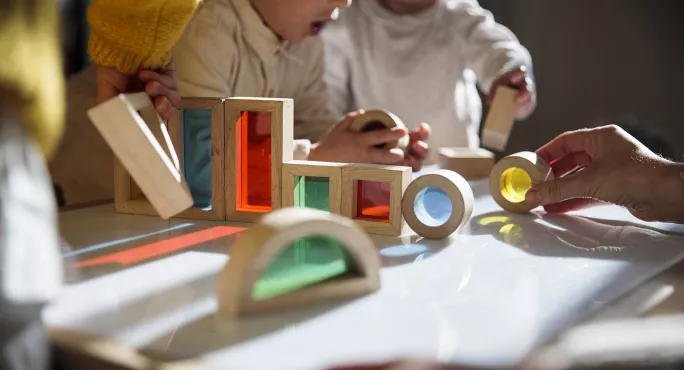- Home
- News
- Early Years
- SNP members back motion to raise school starting age
SNP members back motion to raise school starting age

SNP members have backed a motion that would see the age when children go to school increased and create “a kindergarten stage” in Scotland.
Proposed by the party’s policy development convener Toni Giugliano, the motion calls on the Scottish government to introduce a “statutory play-based kindergarten stage for 3- to 6-year-olds” as well as raising the formal school starting age to 6.
The motion, which was passed overwhelmingly by members, will not necessarily become Scottish government policy.
However, the existing and very controversial Scottish government policy of testing pupils’ literacy and numeracy in the first year of primary came under fire - although it was councils that were blamed.
- Background: Scottish government accused of ‘contempt’ over P1 tests
- Reporter’s take: Why raising the school starting age isn’t a silver bullet
- Related: ‘Focus on nursery teachers to close attainment gap’
Speaking to the motion, Mr Giugliano said there was progress that the Scottish government had made on education.
He added: “But let’s be clear - what we’re proposing here, we’re not doing already.
“We’re clearly saying we want a kindergarten stage for 3- to 6-year-olds that is universal and funded. That’s not the same as what we’re doing now.”
Mr Giugliano went on the say that teachers were under pressure to teach the three Rs due to assessments in the early stages of primary school, putting “pressure” on children.
He continued: “What we are doing now is we have kids at 4 and 5 who are having to be assessed.
“Where local authorities are asking teachers for their progress reports, and essentially what that means is that teachers are forced to teach the three Rs - reading, writing and reckoning - which in, turn, puts pressure on children to make that progress in P1.
“So we can’t be doing it already if we have these formalised assessments, which, by the way, is a policy that this conference has never supported.”
The Scottish government’s Scottish National Standardised Assessments (or SNSAs) take place in P1, P4, P7 and S3 and are used by teachers to support their judgements about whether or not pupils are hitting the expected level for their age and stage.
That data is then collected by the Scottish government as a means of tracking the success of the education system.
However, it has long been argued that the tests should be abandoned in P1 with the Scottish Parliament voting in September 2018 to “halt” literacy and numeracy tests in P1.
So far, though, the Scottish government has refused to scrap them.
Speaking at a fringe event during the SNP conference, EIS union general secretary Andrea Bradley said care should be exercised if the motion is to be implemented by the Scottish government in case it led to cuts in teacher numbers.
She said: “EIS agrees with the thrust of the motion that was debated this morning, but we’re deeply wary that the proposition could be hijacked and ridden as a Trojan horse by those who don’t have the interest of our youngest learners at heart, but who do have their eyes on pounds and pence.”
Ms Bradley worried that the creation of a kindergarten system would mean fewer teachers dealing with the youngest pupils.
The number of teachers working in the early years has been falling for years in Scotland - in 2015 there were over 1,000 nursery teachers but by last year that number had dropped to 704.
In June, in his final address to an EIS annual general meeting, after 10 years as general secretary, Larry Flanagan said it made “more sense to prevent the attainment gap establishing itself than to engage in a Sisyphus-like struggle to close it”, and that “securing the role of nursery teachers is the most fundamental step to achieving that”.
Register with Tes and you can read two free articles every month plus you'll have access to our range of award-winning newsletters.
Keep reading with our special offer!
You’ve reached your limit of free articles this month.
- Unlimited access to all Tes magazine content
- Save your favourite articles and gift them to your colleagues
- Exclusive subscriber-only stories
- Over 200,000 archived articles
- Unlimited access to all Tes magazine content
- Save your favourite articles and gift them to your colleagues
- Exclusive subscriber-only stories
- Over 200,000 archived articles



